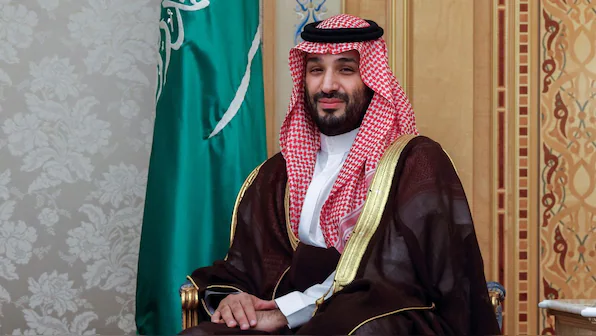Saudi Arabia’s dilemma is whether to join BRICS or stay with the West it stands at a crossroads. The country has received an invitation to join the BRICS group during its upcoming summit in Kazan this October. This invitation follows the group’s expansion last year when six new countries joined: Argentina, Egypt, Ethiopia, Iran, Saudi Arabia, and the UAE. While Iran accepted its membership quickly, Saudi Arabia is taking a more cautious approach. The Kingdom is carefully considering the benefits and risks of joining this economic alliance.
What is BRICS?
BRICS is a group of five major emerging economies: Brazil, Russia, India, China, and South Africa. These countries represent a significant portion of the world’s population and economic activity. In fact, BRICS countries make up about 45% of the global population and contribute to 28% of the world’s GDP. This makes BRICS an influential player in global trade and economics.
Saudi Arabia’s Economic Benefits
Saudi Arabia sees many potential economic benefits from joining BRICS. The group offers access to a large market. Riyadh’s trade with BRICS countries is already greater than its trade with the United States. This shift shows a growing trend towards economic ties with BRICS nations.
Joining BRICS could also attract investments to Saudi projects. The Kingdom aims to diversify its economy, reducing its dependence on oil. Countries like China and India are eager to collaborate with Saudi Arabia, especially in areas like renewable energy and infrastructure. These partnerships could lead to new job opportunities and economic growth.
Energy and Geopolitical Strength
BRICS includes Saudi Arabia’s key customers for crude oil: China and India. This makes the group an important platform for Saudi Arabia to strengthen its position in the global energy market. By aligning with these major consumers, Saudi Arabia can enhance its influence over oil prices and supply.
Moreover, joining BRICS could reinforce Saudi Arabia’s cooperation with Russia, a significant player in global oil markets. This partnership could strengthen their collaboration within OPEC+, the organization of oil-exporting countries, which plays a crucial role in regulating oil production and prices.
On a geopolitical level, formal membership in BRICS aligns with Saudi Arabia’s strategy of diversifying its partnerships. As the world shifts towards a multipolar structure, Saudi Arabia seeks to engage with various global powers rather than rely solely on traditional allies like the United States.
Potential Challenges and Risks
Despite the potential benefits, Saudi Arabia is aware of the risks associated with joining BRICS. The Kingdom has maintained strong defense and security ties with the United States for many years. The U.S. is Saudi Arabia’s main arms supplier and a longtime ally. If Saudi Arabia aligns more closely with BRICS, it might find itself caught in the geopolitical tensions between the West and countries like Russia and China.
Public opinion also plays a significant role in Saudi Arabia’s decision-making process. Polls indicate that many Saudis prefer to maintain close relations with the U.S. This sentiment could complicate the government’s efforts to pivot towards BRICS.
Saudi Arabia’s Balanced Approach
Given these considerations, Saudi Arabia is likely to adopt a balanced approach. Instead of committing fully to BRICS membership, Riyadh might engage selectively in BRICS initiatives. This strategy allows the Kingdom to benefit from trade and investment opportunities without becoming overly entangled in the political dynamics of the group.
By participating in BRICS activities, Saudi Arabia can explore new partnerships while still nurturing its long-standing relationships with Western allies. This pragmatic approach gives the Kingdom the flexibility to navigate changing geopolitical landscapes while preserving its autonomy.
The Future of Saudi Arabia’s Foreign Policy
Saudi Arabia’s decision on BRICS membership will have long-lasting implications for its foreign policy. As the global balance of power shifts, the Kingdom must carefully consider how it positions itself. The potential economic advantages are significant, but the geopolitical challenges are equally important.
The coming months will be crucial for Saudi Arabia. The summit in Kazan will provide a platform for discussions about membership and collaboration. The decisions made during this time will shape Saudi Arabia’s role in the global economy and its relationships with key partners.
What Happens Next ?
Saudi Arabia faces an important strategic decision regarding its potential membership in BRICS. The economic benefits are appealing, and the group offers a chance to strengthen ties with key energy consumers. The risks associated with aligning more closely with countries like Russia and China cannot be overlooked.
As Saudi Arabia navigates these complex waters, it is likely to take a pragmatic path. By balancing its relationships with BRICS and Western allies, the Kingdom can maximize its opportunities while minimizing potential pitfalls. The world will be watching closely as Saudi Arabia shapes its future in the global arena.

